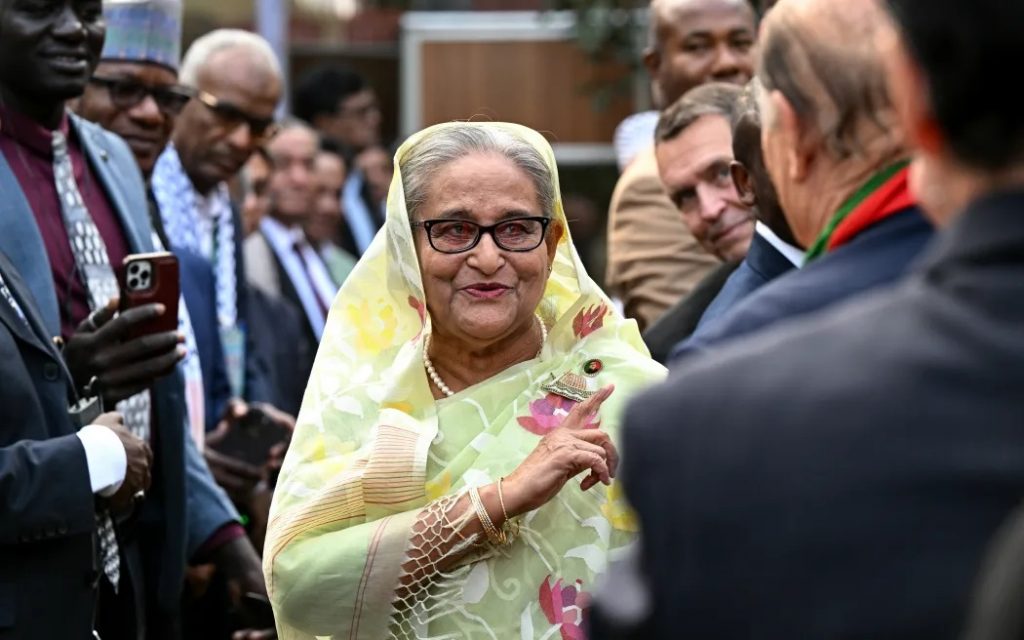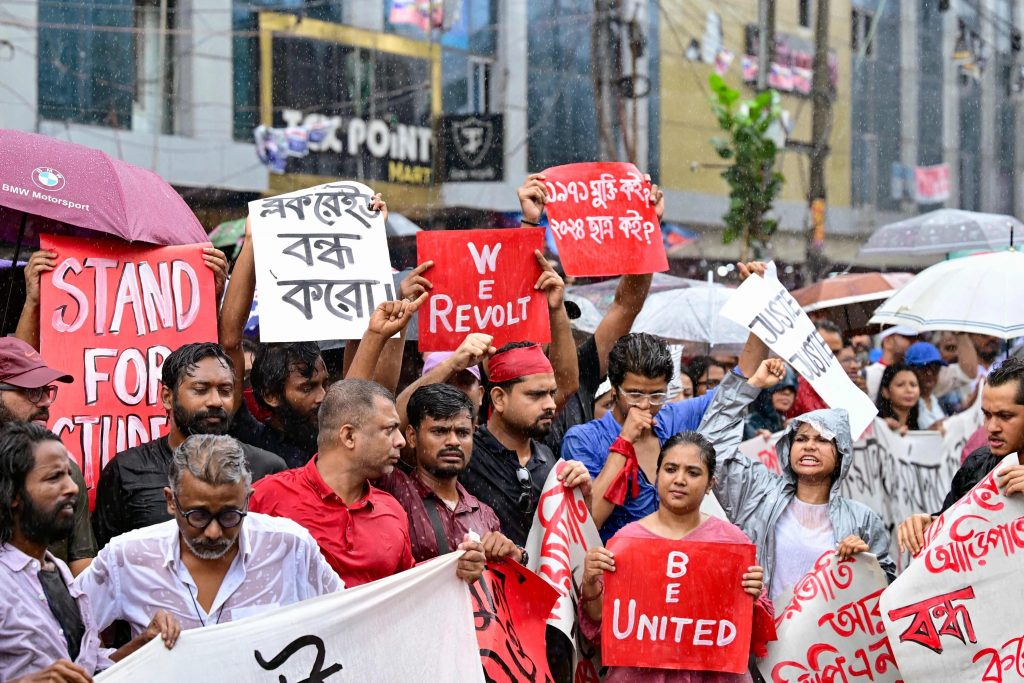Bangladeshi Prime Minister resigns after weeks of deadly protests

Bangladeshi Prime Minister Sheikh Hasina has resigned following weeks of violent anti-government protests, marking the end of her over two-decade-long dominance in the country’s politics. The 76-year-old leader reportedly fled to India on Monday.
In response to Hasina’s resignation, crowds celebrated in the streets, with some breaking into the prime ministerial palace, reportedly looting and vandalizing parts of her former residence.
Hours later, President Mohammed Shahabuddin ordered the release of jailed former Prime Minister Khaleda Zia and all students detained during the recent protests against a quota system for government jobs.
Shahabuddin announced that an interim government would be established, new elections would be called, and a national curfew would be lifted.
On Monday, Dhaka saw attacks on police and government buildings, with some set on fire. Protesters also attempted to dismantle a statue of Sheikh Mujibur Rahman, Hasina’s father and an independence leader.
Security forces, including the army and police, were deployed throughout the city, and mobile phone services were temporarily disrupted. The violence resulted in dozens of deaths; AFP reported 66 fatalities, while local sources like the Dhaka Tribune cited up to 135 deaths.
Hasina’s departure leaves a significant gap in Bangladeshi politics, which has been marked by a long-standing rivalry between her Awami League and the Bangladesh Nationalist Party.
The country has experienced multiple military coups, with the most recent occurring in 2007.
The US praised the army for its “restraint” and called for the formation of an interim government, while the EU urged for an “orderly and peaceful transition” to a democratically elected government. India has yet to issue an official response.
Debapriya Bhattacharya, a senior economist at the Centre for Policy Dialogue in Dhaka, noted that while Hasina’s resignation was met with public euphoria, there had been a rise in attacks on the Hindu minority.
He warned that the new government would need to address these issues and protect religious minorities.
Hasina’s allies have stated that she will not return to politics. Her son, Sajeeb Wazed Joy, expressed disappointment, saying, “She’s in her late 70s.

She is so disappointed that after all her hard work, for a minority to rise up against her, I think she’s done. My family and I are done.”
Critics of Hasina’s rule point to forced disappearances, extra-judicial killings, and the suppression of opposition figures.
However, Wazed defended his mother’s record, highlighting her achievements in transforming Bangladesh from a failing state into a rapidly growing economy.
Protests began over a quota system for government jobs, which reserved a third of civil service positions for descendants of veterans from the 1971 independence war.
Dr. Chietigj Bajpaee, a senior research fellow at Chatham House, explained that high unemployment and competition for limited civil service jobs made the quotas a significant political issue.
The protests, intensified by frustrations with “one-party rule” and curtailed political freedoms, demanded not only Hasina’s resignation but also broader democratic reforms, better job opportunities, and improvements in the education system.
The government had scaled back the quota system following a Supreme Court ruling last month, but protests continued, driven by demands for justice and reform.
Source-BBC




